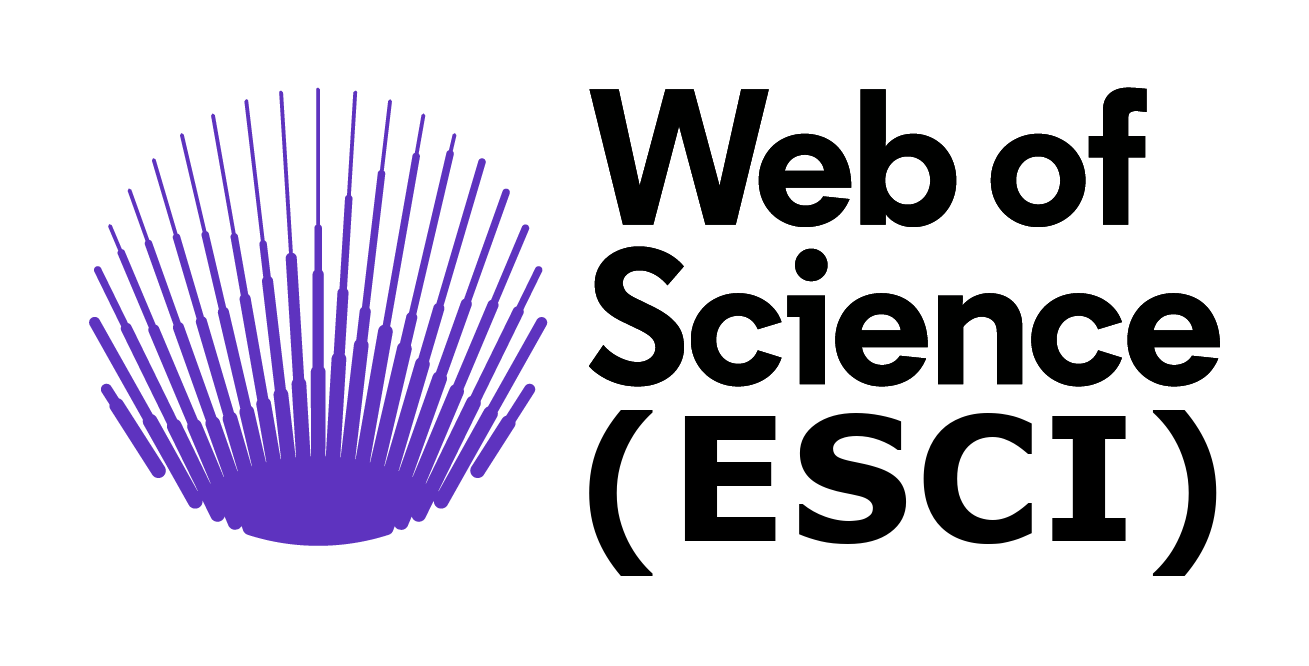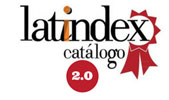Literature Review of Reverse Logistic, applications and future trends
DOI:
https://doi.org/10.29019/enfoqueute.782Keywords:
Reverse logistic, taxonomy, closed loop chainAbstract
This article presents a review of the literature on Reverse Logistics (RL) research, application cases and exploration. Various databases were used to retrieve articles. This review has allowed to analyze initial concepts of RL and complementary ones with new optics and arguments developed by various authors. The main contribution is the taxonomy proposed in the development of the article. It was made up of relationship of themes and terms found in the literary review. Also, the most important fields of application and future trends in RL have been identified, where it has been determined that it is necessary to extend the analysis of RL towards an economic, social, cultural and environmental perspective.
Metrics
Downloads
References
Abuabara, L., Paucar-Caceres, A., & Burrowes-Cromwell, T. (2019). Consumers values and behaviour in the Brazilian coffee-in-capsules market: Promoting circular economy. International Journal of Production Research, 57(1), 1–20. https://doi.org/10.1080/00207543.2019.1629664
Agrawal, S., & Singh, R. (2019) Analyzing disposition decisions for sustainable reverse logistics: Triple Bottom Line approach. Resources, Conservation and Recycling, 150, artículo 104448. https://doi.org/10.1016/j.resconrec.2019.104448
Agrawal, S., Singh, R., & Murtaza, Q. (2016a). Disposition decisions in reverse logistics: Graph theory and matrix approach. Journal of Cleaner Production, 137, 93–104. https://doi.org/10.1016/j.jclepro.2016.07.045
Agrawal, S., Singh, R., & Murtaza, Q. (2016b). Outsourcing decisions in reverse logistics: Sustainable balanced scorecard and graph theoretic approach. Resources, Conservation & Recycling, 108, 41–53. https://doi.org/10.1016/j.resconrec.2016.01.004
Agrawal, S., Singh, R., & Murtaza, Q. (2016c). Prioritizing critical success factors for reverse logistics implementation using fuzzy-TOPSIS methodology. Journal of Industrial Engineering International, 12(1), 15–27. https://doi.org/10.1007/s40092-015-0124-8
Alamerew, Y., & Brissaud, D. (2020). Modelling reverse supply chain through system dynamics for realizing the transition towards the circular economy: A case study on electric vehicle batteries. Journal of Cleaner Production, 254, artículo 120025, https://doi.org/10.1016/j.jclepro.2020.120025
Amin, S., & Baki, F. (2017). A facility location model for global closed-loop supply chain network design. Applied Mathematical Modelling, 41, 316–330. https://doi.org/10.1016/j.apm.2016.08.030
Amin, S., Zhang, G., & Akhtar, P. (2017). Effects of uncertainty on a tire closed-loop supply chain network. Expert Systems with Applications: An International Journal, 73(Issue C), 82–91. https://doi.org/10.1016/j.eswa.2016.12.024
Aydin, N. (2020). Designing reverse logistics network of end-of-life-buildings as preparedness to disasters under uncertainty. Journal of Cleaner Production, 256, artículo 120241. https://doi.org/10.1016/j.jclepro.2020.120341
Banguera, L., Sepúlveda, J., Ternero, R., Vargas, M., & Vásquez, Ó. (2018). Reverse logistics network design under extended producer responsibility: The case of out-of-use tires in the Gran Santiago city of Chile. International Journal of Production Economics, 205I, 193–200. https://doi.org/10.1016/j.ijpe.2018.09.006
Batarfi, R., Jaber, M., & Aljazzar, S. (2017). A profit maximization for a reverse logistics dual-channel supply chain with a return policy. Computers & Industrial Engineering, 106, 58–82. https://doi.org/10.1016/j.cie.2017.01.024
Bouzon, M., Govindan, K., & Rodriguez, C. (2018). Evaluating barriers for reverse logistics implementation under a multiple stakeholders’ perspective analysis using grey decision making approach. Resources, Conservation and Recycling, 128, 315–335. https://doi.org/10.1016/j.resconrec.2016.11.022
Bustos F. C. (2015). La logística inversa como fuente de producción sostenible. Actualidad Contable Faces, 18(30), 7–32. https://www.redalyc.org/articulo.oa?id=25739666002
Carter, C., & Ellram, L. (1998). Reverse logistics: A review of the literature and framework for future investigation. Journal of Business Logistic, 19(1), 85–102. https://bit.ly/3o94SEN
Cruz-Netro, Z., Medina, J., Cartas, A., y Garza, R. (2016). Solid waste management in Mexico’s offshore platform construction: Determining potential supply for a reverse logistics process. NETNOMICS: Economic Research and Electronic Networking, 17(1), 71–94. https://doi.org/10.1007/s11066-016-9105-3
De Brito, M., & Dekker, R. (2014). A framework for reverse logistics. En Dekker R., Fleischmann M., Inderfurth K., Van Wassenhove L.N. (Eds.), Research in Management (pp. 3–27). https://doi.org/10.1007/978-3-540-24803-3_1
De la Hoz, E., Vélez, J., & López, L. (2017). Modelo de programación lineal multiobjetivo para la logística inversa en el sector plástico de polipropileno. Información Tecnológica 28(5), 31–36. https://doi.org/10.4067/S0718-07642017000500005
De Oliveira, C., Luna, M., & Campos, L. (2019). Understanding the Brazilian expanded polystyrene supply chain and its reverse logistics towards circular economy. Journal of Cleaner Production, 235, 562–573. https://doi.org/10.1016/j.jclepro.2019.06.319
De Oliveira, T., & Borges, A. (2020). The development role of customers in the reverse logistics of industrial waste. En Business, Trade and Institutional Sustainability (245–254). https://doi.org/10.1007/978-3-030-26759-9_57
Dondo, R., & Méndez, C. A. (2016). Operational planning of forward and reverse logistic activities on multi-echelon supply-chain networks. Computers and Chemical Engineering, 88(C), 170–184. https://doi.org/10.1016/j.compchemeng.2016.02.017
Donner, M., Gohier, R., & Vries, H. (2020). A new circular business model typology for creating value from agro-waste. Science of the Total Environment, 716, artículo 137065. https://doi.org/10.1016/j.scitotenv.2020.137065
Fattahi, M., & Govindan, K. (2017). Integrated forward/reverse logistics network design under uncertainty with pricing for collection of used products. Annals of Operations Research 253(1), 193–225. https://doi.org/10.1007/s10479-016-2347-5
García-Rodríguez, F., Castilla-Gutiérrez, C., & Bustos-Flores, C. (2013). Implementation of reverse logistics as a sustainable tool for raw material purchasing in developing countries: The case of Venezuela. International Journal Production Economics, 141(2), 582–592. https://doi.org/10.1016/j.ijpe.2012.09.015
Gómez Montoya, R., Correa Espinal, A., & Vásquez Herrera, L. (2017). Logística inversa: Un enfoque con responsabilidad social empresarial. Criterio Libre, 10(16), 144–158. https://doi.org/10.18041/1900-0642/criteriolibre.16.1167
Govindan, K., Agarwal, V., Dhingra, J., & Jha, P. (2019). An integrated decision making model for the selection of sustainable forward and reverse logistic providers. Annals of Operations Research, 273(1–2), 607–650. https://doi.org/10.1007/s10479-017-2654-5
Govindan, K., & Bouzon, M. (2018). From a literature review to a multi-perspective framework for reverse logistics barriers and drivers. Journal of Cleaner Production, 187, 318–337. https://doi.org/10.1016/j.jclepro.2018.03.040
Govindan, K., Fattahi, M., & Keyvanshokooh, E. (2017). Supply chain network design under uncertainty: A comprehensive review and future research directions. European Journal of Operational Research, 263(1), 108–141. https://doi.org/10.1016/j.ejor.2017.04.009
Govindan, K., Jha, P., Agarwal, V., & Dhingra. J (2019). Environmental management partner selection for reverse supply chain collaboration: A sustainable approach. Journal of Environmental Management, 236, 784–797. https://doi.org/10.1016/j.jenvman.2018.11.088
Govindan, K., Kadziński, M., Ehling, R., & Miebs, G. (2019). Selection of a sustainable third-party reverse logistics provider based on the robustness analysis of an outranking graph kernel conducted with ELECTRE I and SMAA. Omega, 85, 1–15. https://doi.org/10.1016/j.omega.2018.05.007
Govindan, K., Mina, H., Esmaeili, A., & Mohammad, S. (2020). An integrated hybrid approach for circular supplier selection and closed loop supply chain network design under uncertainty. Journal of Cleaner Production, 242, 118317. https://doi.org/10.1016/j.jclepro.2019.118317
Govindan, K., Paam, P., & Abtahi, A. (2016). A fuzzy multi-objective optimization model for sustainable reverse logistics network design. Ecological Indicators, 67, 753–768. https://doi.org/10.1016/j.ecolind.2016.03.017
Guarnieri, P., Cerqueira-Streit, J., & Batista, L. (2020). Reverse logistics and the sectoral agreement of packaging industry in Brazil towards a transition to circular economy. Resources, Conservation & Recycling, 153, 104541. https://doi.org/10.1016/j.resconrec.2019.104541
Gutberlet, J., Carenzo, S., Kain, J., & Martiniano, A. (2017). Waste picker organizations and their contribution to the circular economy: Two case studies from a Global South perspective. 6(4), 52, MDPI Resources. https://doi.org/10.3390/resources6040052
Herrera-Granda, W. G., Imbaquingo-Usiña, W., Lorente-Leyva, L., Herrera-Granda, E., Peluffo-Ordoñez, D, Rossit, D. (2019). Optimization of the network of urban solid waste containers: A case study. En Botto-Tobar M., Pizarro G., Zúñiga-Prieto M., D’Armas M., Zúñiga Sánchez M. (Eds), Technology Trends, CITT: Vol 895 (pp. 91–103). Springer. https://doi.org/10.1007/978-3-030-05532-5_44
Heydari, J., Govindan, K., & Jafari, A. (2017). Reverse and closed loop supply chain coordination by considering government role. Transportation Research Part D: Transport and Environment, 52(parte A), 379–398. https://doi.org/10.1016/j.trd.2017.03.008
Jin, H., Frost, K., Sousa, I., Ghaderi, H., Bevan, A., Zakotnik, M., & Handwerker, C. (2020). Life cycle assessment of emerging technologies on value recovery from hard disk drives. Resources, Conservation and Recycling, 157, artículo 104781. https://doi.org/10.1016/j.resconrec.2020.104781
Johnson, F., Vega, J., Cabera, G., & Cabrera, E. (2015). Ant colony system for a problem in reverse logistic. Studies in Informatics and Control, 24(2), 133–140. https://doi.org/10.24846/v24i2y201501
Julianelli, V., Caiado, R., Scavarda, L., & Pinto, S. (2020). Interplay between reverse logistics and circular economy: Critical success factors-based taxonomy and framework. Resources, Conservation and Recycling, 158, artículo 104784. https://doi.org/10.1016/j.resconrec.2020.104784
Karagoz, S., Aydin, N., & Simic, V. (2020). End-of-life vehicle management: A comprehensive review. Journal of Material Cycles and Waste Management, 22(2), 416–442. https://doi.org/10.1007/s10163-019-00945-y
Kazemi, N., Modak, N., & Govindan, K. (2019). A review of reverse logistics and closed loop supply chain management studies published in IJPR: A bibliometric and content analysis. International Journal of Production Research, 57(15–16), 4937–4960. https://doi.org/10.1080/00207543.2018.1471244
Lagos, C., Guerrero, G., Cabrera, E., Moltedo, A., Johnson, F., & Paredes, F. (2018). An improved particle swarm optimization algorithm for the VRP with simultaneous pickup and delivery and time windows. IEEE Latin America Transactions, 16(6), 1732–1740. https://doi.org/10.1109/TLA.2018.8444393
Li, J., Wang, J., Pan, Q., Duan, P., Sang, H., Gao, K., & Xue, Y. (2017). A hybrid artificial bee colony for optimizing a reverse logistics network system. Soft Computing. Springer Berlin Heidelberg, 21(20), 6001–6018. https://doi.org/10.1007/s00500-017-2539-1
Liu, W., Wan, Z., Wan, Z., & Bing, G. (2019). Sustainable recycle network of heterogeneous pharmaceuticals with governmental subsidies and service-levels of third-party logistics by bi-level programming approach. Journal of Cleaner Production, 249, artículo 119324. https://doi.org/10.1016/j.jclepro.2019.119324
López, J., Freile, Á., & Iglesias, S. (2019, julio 24–26 ). Reduction in picking times orders for delivery in a national distribution center: A case study. 17th LACCEI International Multi-Conference for Engineering, Education, and Technology: “Industry, Innovation, and Infrastructure for Sustainable Cities and Communities” Montego Bay, Jamaica. https://doi.org/10.18687/LACCEI2019.1.1.366
Mahmoudi, M., & Parviziomran, I. (2020). Reusable packaging in supply chains: A review of environmental and economic impacts, logistics system designs, and operations management. International Journal of Production Economics, 228(3), artículo 107730. https://doi.org/10.1016/j.ijpe.2020.107730
Mangla, S., Govindan, K., & Luthra, S. (2016). Critical success factors for reverse logistics in Indian industries: A structural model. Journal of Cleaner Production, 129, 608–621. https://doi.org/10.1016/j.jclepro.2016.03.124
Mar, J., & Gracia, M. (2015). Logística inversa: Prácticas actuales, tendencias futuras y oportunidades de investigación. Revista QUID: Investigación, Ciencia y Tecnología, 23(2014), 31–40. https://dialnet.unirioja.es/servlet/articulo?codigo=5235933
Mihi-Ramírez, A., Arias-Aranda, D., & García-Morales, V. (2012). La gestión de la logística inversa en las empresas españolas: Hacia las prácticas de excelencia. Universia Business Review, 33, 70–82. https://www.redalyc.org/articulo.oa?id=43323186004
Misni, F., & Lee, L. S. (2017). A Review on strategic, tactical and operational decision planning in reverse logistics of green supply chain network design. Journal of Computer and Communications, 5(8), 83–104. https://doi.org/10.4236/jcc.2017.58007
Mukherjee, C., Denney, J., Mbonimpa, E., Slagley, J., & Bhowmik, R. (2020). A review on municipal solid waste-to-energy trends in the USA. Renewable and Sustainable Energy Reviews, 119, artículo 109512. https://doi.org/10.1016/j.rser.2019.109512
Noé, C. (2015). Relación entre logística inversa y desempeño: Estudio de casos en Córdoba, Argentina. Cuadernos de Administración, 31(53), 85–96. https://bit.ly/3rcgHMm
Oyola, J., & Amaya-Mier, R. (2019, marzo 5–7). A reverse logistics network optimization model for residual OTR tires from the mining industry: A Colombian case study [Proceedings]. International Conference on Industrial Engineering and Operations Management, Bangkok, Tailandia. https://bit.ly/3g9NRpL
Peña-Montoya, C., Osorio-Gómez, J., Vidal-Holguin, C., Torres-Lozada, P., & Marmolejo-Rebellon, L. (2015). Reverse logistics in the plastics subsector: Main facilitators and barriers. Ingeniería e Investigación, 35(3), 27–33. https://doi.org/10.15446/ing.investig.v35n3.49834
Peña-Montoya, C., Bouzon, M., Torres-Lozada, P., & Vidal-Holguin, J. (2020). Assessment of maturity of reverse logistics as a strategy to sustainable solid waste management. Waste Management & Research: The Journal for a Sustainable Circular Economy, 38(1), 65–76. https://doi.org/10.1177/0734242x19897131
Pérez-Salazar, M., Aguilar, A., Cedillo-Campos, M., & Hernández, J. (2017). The role of knowledge management in supply chain management: A literature review. Journal of Industrial Engineering Management, 10(4), 711–788. https://doi.org/10.3926/jiem.2144
Piyathanavong, V., Garza-Reyes, J., Kumar, V., Maldonado-Guzman, G., y Mangla, S. (2019). The adoption of operational environmental sustainability approaches in the Thai manufacturing sector. Journal of Cleaner Production, 220, 507–528. https://doi.org/10.1016/j.jclepro.2019.02.093
Rabbani, M., Saravi, N., & Farrokhi-Asl, H. (2017). Design of a forward/reverse logistics with environmental considerations. International Journals of Supply and Operations Management, 4(2), 129–146. https://doi.org/10.22034/2017.2.02
Ranjbaran, F., Kashan, A., & Kazemi, A. (2019). Mathematical formulation and heuristic algorithms for optimisation of auto-part milk-run logistics network considering forward and reverse flow of pallets. International Journal of Production Research, 58(2), 1–35. https://doi.org/10.1080/00207543.2019.1617449
Reddy, K., Kummar, A., Sarkis, J., & Kumar, M. (2020). Effect of carbon tax on reverse logistics network design. Computers & Industrial Engineering, 139, 106184. https://doi.org/10.1016/j.cie.2019.106184.
Reverse Logistic and Sustainability Organization. (2007). RLSC: About RLSC.
Rodrigues, A., Boscov, M., & Günther, W. (2020). Domestic flow of e-waste in São Paulo, Brazil: Characterization to support public policies. Waste Management, 102(1), 474–485. https://doi.org/10.1016/j.wasman.2019.10.052
Rossit, D., Toutouh, J., & Nesmachnow, S. (2020). Exact and heuristic approaches for multi-objective garbage accumulation points location in real scenarios. Waste Management, 105, 467–481. https://doi.org/10.1016/j.wasman.2020.02.016
Rusel, C., & Tello, B. (2019). Proceedings of the Future Technologies Conference (FTC). En K. Arai, R. Bhatia y S. Kapoor (Eds.), Proceedings of the Future Technologies Conference (FTC) (Vol. 2, pp, 305–323). Springer. https://doi.org/10.1007/978-3-030-02683-7
Saffar, M., Shakouri, H., & Razmi, J. (2015). A new multi objective optimization model for designing a green supply chain network under uncertainty. International Journal of Industrial Engineering Computations, 6(1), 15–32. https://doi.org/10.5267/j.ijiec.2014.10.001
Sepúlveda-Rojas, J., & Benitez-Fuentes, P. (2016, mayo 10–14). Coordination and return uncertainties in closed loop supply chains. 6th International Conference on Computers Communications and Control (ICCCC), 188–195, Oradea, Rumania. https://doi.org/10.1109/ICCCC.2016.7496759
Sepúlveda, J., & Banguera, L. (2017). A model for design of a reverse logistics network under extended producer responsibility. 24th International Conference on Production Research, ICPR.
Silva Rodríguez, J. (2017). Diseño de una red de logística inversa: Caso de estudio Usochicamocha-Boyacá. Ingeniería y Ciencia, 13(26), 91–113. https://doi.org/10.17230/ingciencia.13.26.4
Soto, J., Muñoz, J., & Giesen, R. (2016). How many urban recycling centers do we need and where ? A continuum approximation approach. Transportation Research Procedia, 12, 851–860. https://doi.org/10.1016/j.trpro.2016.02.038
Srivastava, S. (2008). Network design for reverse logistics. Omega: The International Journal of Management Science, 36(4), 2007–2009. https://doi.org/10.1016/j.omega.2006.11.012
Stock, J. (1992). Reverse logistics in the supply chain. Council of Logistics Management.
Tosarkani, B., & Amin, S. (2018). A multi-objective model to configure an electronic reverse logistics network and third party selection. Journal of Cleaner Production, 198, 662–682. https://doi.org/10.1016/j.jclepro.2018.07.056
Trochu, J., Chaabane, A., & Ouhimmou, M. (2020). A carbon-constrained stochastic model for eco-efficient reverse logistics network design under environmental regulations in the CRD industry. Journal of Cleaner Production, 245, artículo 118818. https://doi.org/10.1016/j.jclepro.2019.118818
Uriarte-Miranda, M., Caballero-Morales, S., Martinez-Flores, J., Cano-Olivos, P., & Akulova, A. (2018). Reverse logistic strategy for the management of tire waste in Mexico and Russia: Review and conceptual model. MDPI Sustainability. https://doi.org/10.3390/su10103398
Van Engeland, J., Beliën, J., De Boeck, L., & De Jaeger, S. (2018). Literature review: Strategic network optimization models in waste reverse supply chains. Omega, 91. https://doi.org/10.1016/j.omega.2018.12.001
Voigt, D., Casarotto, N., Atherino, M., Guerra, T., & Garbin da Rocha, R. (2019). Performance evaluation of reverse logistics: Opportunities for future research. Sustainability, 11(19). https://doi.org/10.3390/su11195291
Wang, J., Li, H., Lu, H., Yang, H., & Wang, C. (2020). Integrating offline logistics and online system to recycle e-bicycle battery in China. Journal of Cleaner Production, 247, artículo 119095. https://doi.org/10.1016/j.jclepro.2019.119095
Zarbakhshnia, N., Wu, Y., Govindan, K., y Soleimani, H. (2020). A novel hybrid multiple attribute decision-making approach for outsourcing sustainable reverse logistics. Journal of Cleaner Production, 242, 118461. https://doi.org/10.1016/j.jclepro.2019.118461
Published
How to Cite
Issue
Section
Copyright (c) 2020 Enfoque UTE

This work is licensed under a Creative Commons Attribution 3.0 International License.
The articles and research published by the UTE University are carried out under the Open Access regime in electronic format. By submitting an article to any of the scientific journals of the UTE University, the author or authors accept these conditions.
The UTE applies the Creative Commons Attribution (CC-BY) license to articles in its scientific journals. Under this open access license, as an author you agree that anyone may reuse your article in whole or in part for any purpose, free of charge, including commercial purposes. Anyone can copy, distribute or reuse the content as long as the author and original source are correctly cited. This facilitates freedom of reuse and also ensures that content can be extracted without barriers for research needs.
This work is licensed under a Creative Commons Attribution 3.0 International (CC BY 3.0).
In addition, the journal Enfoque UTE guarantees and declares that authors always retain all copyrights to the original published works without restrictions [© The Author(s)]. Acknowledgment (BY): Any exploitation of the work is allowed, including a commercial purpose, as well as the creation of derivative works, the distribution of which is also allowed without any restriction.























 Enfoque UTE - Facultad de Ciencias de la Ingeniería e Industrias - Universidad UTE
Enfoque UTE - Facultad de Ciencias de la Ingeniería e Industrias - Universidad UTE